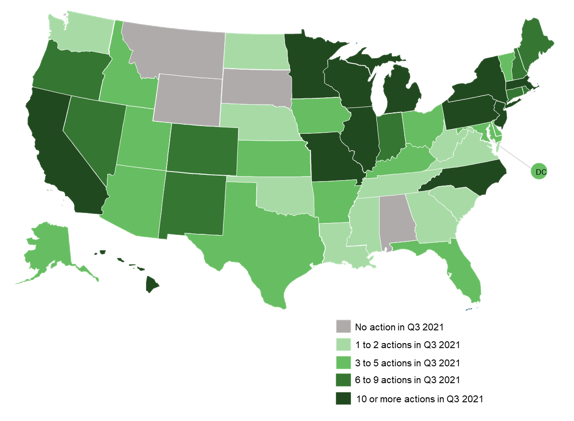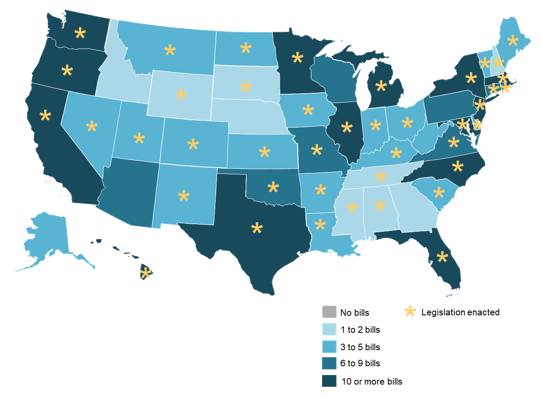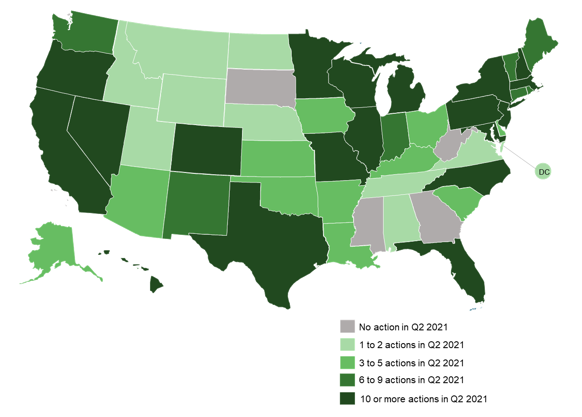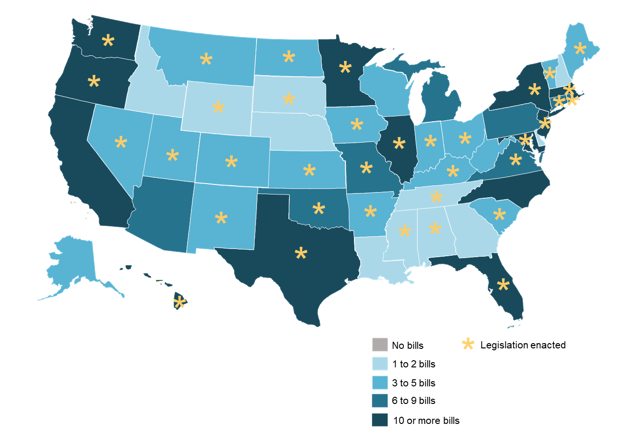Transportation Electrification Plans, Fast Charging Networks, & Underserved Communities in Focus During 2021
Raleigh, NC – (February 9, 2022) The N.C. Clean Energy Technology Center (NCCETC) released its 2021 annual review and Q4 2021 update edition of The 50 States of Electric Vehicles. The quarterly series provides insights on state regulatory and legislative discussions and actions on electric vehicles and charging infrastructure.
The report finds that, for the second year in a row, all 50 states and DC took actions related to electric vehicles and charging infrastructure during 2021 (see figure below). The greatest number of actions related to rebate programs, rate design, electric vehicle registration fees, and charging station deployment.
2021 State and Utility Action on Electric Vehicles
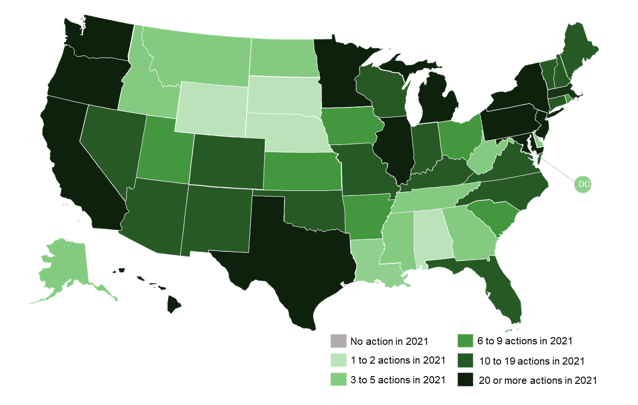
The report highlights ten of the top electric vehicle trends of 2021:
- Utilities working to develop fast charging networks;
- Dedicated support for low-income customers and underserved communities;
- Utilities continue to file expansive transportation electrification plans;
- Growing attention on medium- and heavy-duty vehicle electrification;
- States and utilities using rebates to advance transportation electrification;
- Consideration of demand charge alternatives based on load factor;
- Growing use of the make-ready deployment model;
- States setting zero-emission vehicle procurement targets;
- Utilities developing managed charging programs; and
- Policymakers addressing local barriers to charging infrastructure development.
“Policymakers continued showing strong interest in electric vehicles, introducing a large number of innovative bills to expand the market for electric vehicles,” observed Brian Lips, Senior Policy Project Manager at NCCETC. “Utilities, for their part, also demonstrated creativity in exploring ways they can participate in building out the necessary infrastructure to fuel the growing market.”
A total of 775 electric vehicle actions were taken during 2021, with activity increasing by 30% over 2020. The report notes the top ten states taking the greatest number or most impactful actions in 2021 were California, Connecticut, Illinois, New Mexico, Hawaii, New Jersey, Colorado, Massachusetts, Oregon, and Nevada.
“Many states looked beyond the electrification of personal transportation towards non-personal transport,” noted Rebekah de la Mora, Policy Analyst at NCCETC. “Policies regarding commercial fleets, government fleets, or medium- and heavy-duty vehicles cropped up, leading the way to a more holistic landscape for transportation electrification policy.”
In Q4 2021, 43 states and DC took some type of action on electric vehicles and charging infrastructure. A total of 414 actions were tracked in Q4.
View the 50 States of Electric Vehicles Q4 Quarterly Report and Annual Review Executive Summary
View and Purchase the 50 States of Electric Vehicles 2021 Q3 Update FULL Report
View other 50 States Reports – Solar, Grid Modernization and Electric Vehicles
ABOUT THE N.C. CLEAN ENERGY TECHNOLOGY CENTER
The N.C. Clean Energy Technology Center, as part of the College of Engineering at North Carolina State University, advances a sustainable energy economy by educating, demonstrating and providing support for clean energy technologies, practices and policies. It serves as a resource for innovative, sustainable energy technologies through technology demonstration, technical assistance, outreach and training. For more information about the Center, visit: http://www.nccleantech.

